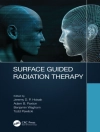Water is one of the most precious and basic needs of life for all living beings, and a precious national asset. Without it, the existence of life cannot be imagined. Availability of pure water is decreasing day by day, and water scarcity has become a major problem that is faced by our society for the past few years. Hence, it is essential to find and disseminate the key solutions for water quality and scarcity issues. The inaccessibility and poor water quality continue to pose a major threat to human health worldwide. Around billions of people lacking to access drinkable water. The water contains the pathogenic impurities; which are responsible for water-borne diseases. The concept of water quality mainly depends on the chemical, physical, biological, and radiological measurement standards to evaluate the water quality and determine the concentration of all components, then compare the results of this concentration with the purpose for which this water is used. Therefore, awareness and a firm grounding in water science are the primary needs of readers, professionals, and researchers working in this research area.
This book explores the basic concepts and applications of water science. It provides an in-depth look at water pollutants’ classification, water recycling, qualitative and quantitative analysis, and efficient wastewater treatment methodologies. It also provides occurrence, human health risk assessment, strategies for removal of radionuclides and pharmaceuticals in aquatic systems. The book chapters are written by leading researchers throughout the world. This book is an invaluable guide to students, professors, scientists and R&D industrial specialists working in the field of environmental science, geoscience, water science, physics and chemistry.
A propos de l’auteur
Inamuddin, Ph D, is an assistant professor at the Department of Applied Chemistry, Zakir Husain College of Engineering and Technology, Faculty of Engineering and Technology, Aligarh Muslim University, Aligarh, India. He has extensive research experience in analytical chemistry, materials chemistry, electrochemistry, renewable energy, and environmental science. He has worked on different research projects funded by various government agencies and universities and is the recipient of multiple awards, including the Fast Track Young Scientist Award and the Young Researcher of the Year Award for 2020, from Aligarh Muslim University. He has published almost 200 research articles in various international scientific journals, 18 book chapters, and 120 edited books with multiple well-known publishers.
Mohd Imran Ahamed, Ph D, is a research associate in the Department of Chemistry, Aligarh Muslim University, Aligarh, India. He has published several research and review articles in various international scientific journals and has co-edited multiple books. His research work includes ion-exchange chromatography, wastewater treatment, and analysis, bending actuator and electrospinning.
Rajender Boddula, Ph D, is currently working for the Chinese Academy of Sciences President’s International Fellowship Initiative (CAS-PIFI) at the National Center for Nanoscience and Technology (NCNST, Beijing). His academic honors include multiple fellowships and scholarships, and he has published many scientific articles in international peer-reviewed journals. He is also serving as an editorial board member and a referee for several reputed international peer-reviewed journals. He has published edited books with numerous publishers and has authored over twenty book chapters.
Tauseef Ahmad Rangreez, Ph D, is working as a postdoctoral fellow at the National Institute of Technology, Srinagar, India. He completed his Ph D in applied chemistry from Aligarh Muslim University, Aligarh, India and worked as a project fellow under the University Grant Commission, India. He has published several research articles and co-edited books. His research interest includes ion-exchange chromatography, development of nanocomposite sensors for heavy metals and biosensors.












